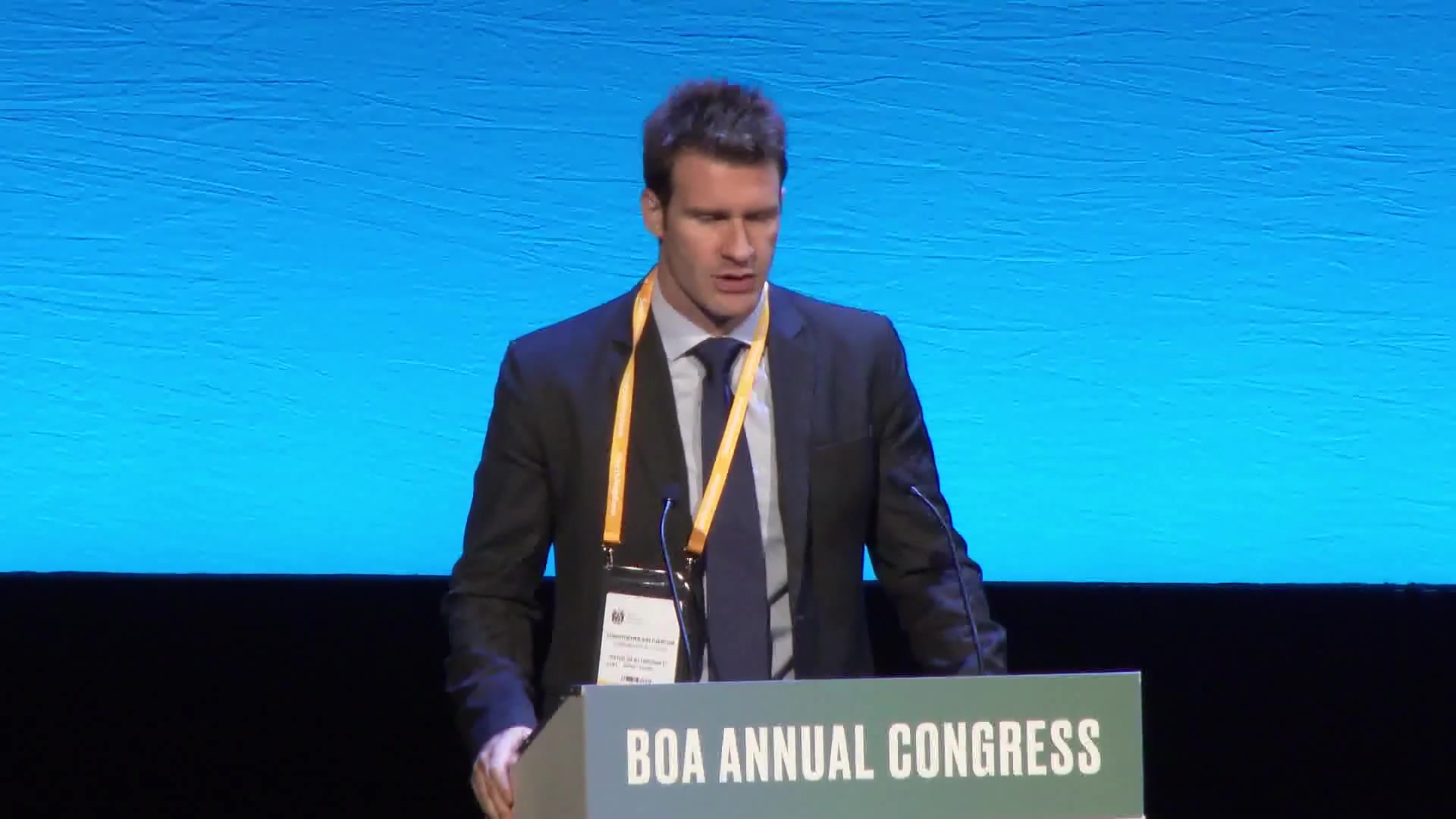Please login to view this media

- Talk
- 20/09/2023
- UK
WAX - Early Versus Delayed Weight Bearing Following Operatively Treated Ankle Fracture (WAX) A Randomised Controlled Trial
Description
The WAX study, presented by Chris Bretherton, investigated the effects of early versus delayed weight bearing after ankle fracture surgery. It emerged from findings of a UK-wide audit indicating that 80% of patients were still advised against walking for six weeks post-surgery, prompting the trial's necessity. The study included adult patients who had ankle fractures repaired within 14 days, with clear guidelines for inclusion and few exclusion criteria, primarily peripheral neuropathy.
After two weeks of non-weight bearing post-surgery, patients returned for a wound check and were assessed for suitability for early weight bearing. Patients were then randomized into groups for either early weight bearing or continued non-weight bearing for a total of six weeks. The study screened 2,200 patients; 800 were eligible, resulting in 565 randomized patients, with strong follow-up compliance of 85% at four months.
Results indicated that early weight bearing led to statistically significant improvements in the Olerud ankle score at four months, while not reaching the level of clinical significance expected. Quality of life assessments mirrored these patterns. Analysis of compliance showed that two-thirds of the delayed group began weight bearing sooner than instructed, reflecting real-world patient behavior.
Costs associated with early weight bearing were lower both in medical expenses and societal impacts, as patients returned to work sooner following surgery. Complications requiring further surgery were similar between both groups, with no significant difference detected.
Overall, the WAX trial supports previous research advocating for early weight bearing post-ankle fracture surgery, emphasizing its safety, efficacy in enhancing recovery times, and cost-effectiveness. The findings suggest a need to adjust clinical recommendations to encourage early weight bearing to improve patient outcomes.